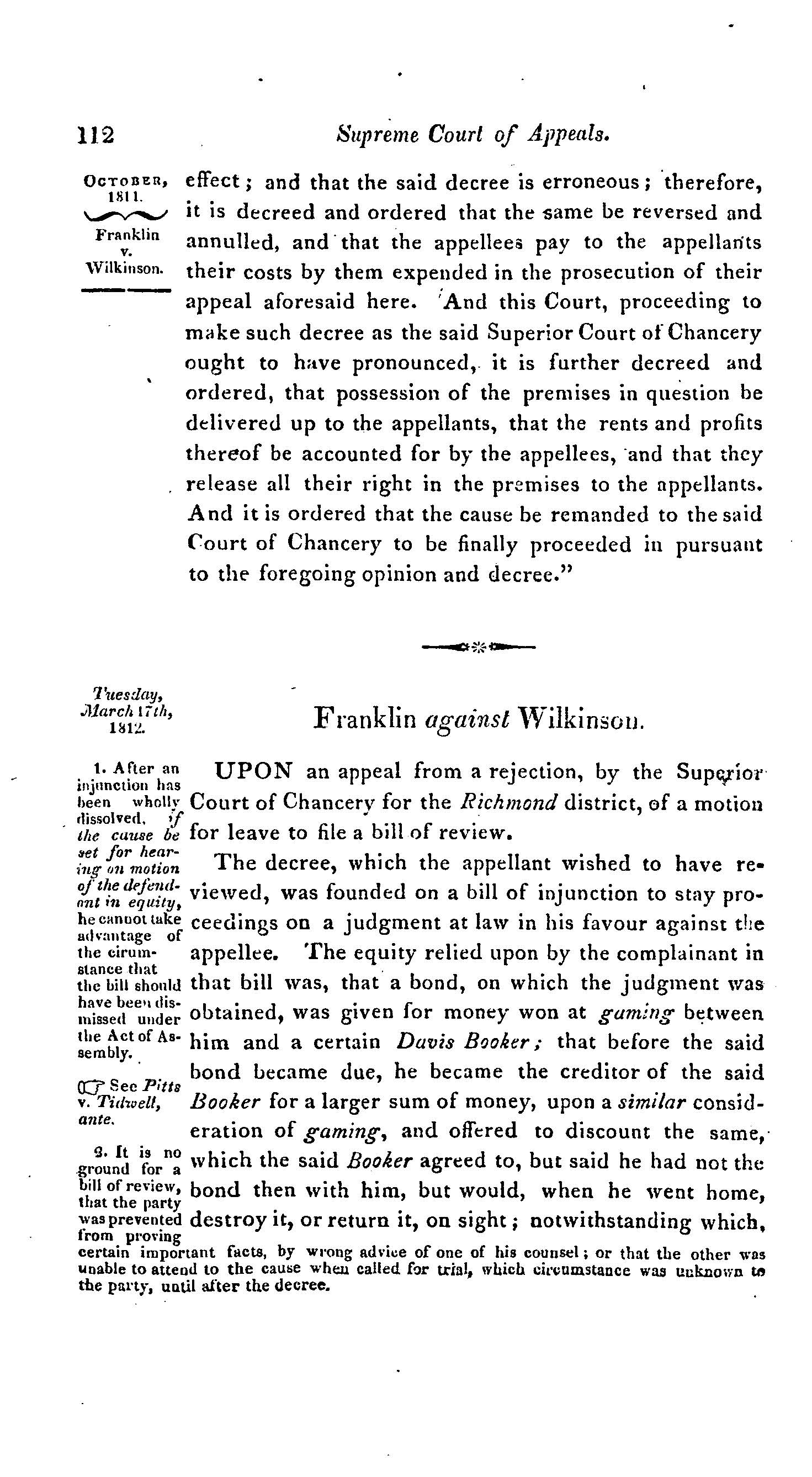Franklin v. Wilkinson

Franklin v. Wilkinson, 17 Va. (3 Munf.) 112 (1811),[1] was a case involving inadequate counsel during an appeal.
Background
Wilkinson owed a bond to Booker for losing at gaming. However, before his bond came due, Wilkinson won a larger sum of money against Booker. Wilkinson offered to cancel the debt if Booker would cancel his. Booker agreed but stated that he did not have the bond with him and would destroy the bond when he returned. However, instead Booker sold the bond to a third party who later it assigned it to Owen Franklin. Wilkinson sued for an injunction against Franklin claiming the bond was obtained by gaming proceeds. However, since the allegations of the suit had no evidence to support it, the injunction was dissolved. The case was not dismissed due to a motion by Wilkinson’s attorney to fight the decision. However, on the day of the hearing, Wilkinson’s counsel did not show up and Wilkinson who was advised not to give a deposition before the case had no evidence to show the bond was obtained through illegal gaming.
The Court's Decision
Chancellor Wythe was of the opinion that there was no error in the lower court’s decree and rejected the motion for leave to file a bill of review. The Court of Appeals affirmed.
See also
References
- ↑ William Munford, Reports of Cases Argued and Adjudged in the Court of Appeals in Virginia, (New York: I. Riley, 1816), 3:112.